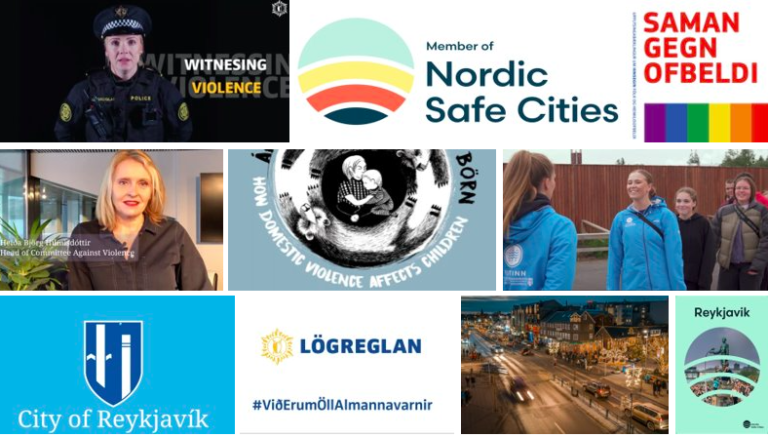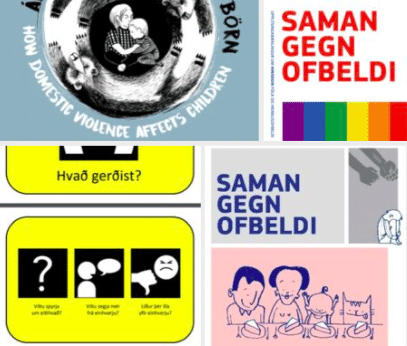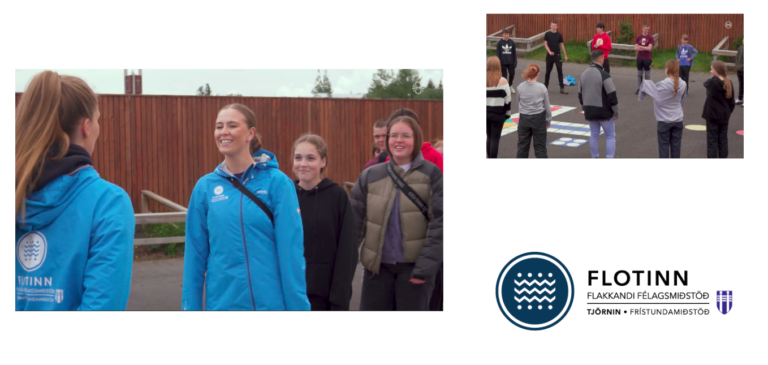Safe City Tour: Preventing Violence in Reykjavík
Categories:
City stories
Udgivet: 11 Dec - 2020

The Safe City Tour travels to Reykjavík
City-wide alliances to prevent domestic violence, fighting youth violence on SoMe, empowering and protecting youth proactively, and enhancing focus on PVE and hate in Reykjavík.
The fourth week of the ‘Safe City Tour’ travelled to the Icelandic capital of Reykjavik. During the safe city tour week, Reykjavík took the local and global public on a virtual visit, where the city provided insights into ongoing initiatives to prevent domestic violence and support survivors, police efforts to combat youth sharing violence on social media, the work of the roaming youth centre, Flotinn, and how the city operates strategically to prevent all forms of violence, including extremist violence and hate in Reykjavík.

Images: City of Reykjavik
Within the Nordic Safe Cities Alliance, Reykjavík’s ‘Safe City Action’ investigates the need and usefulness of initiating the first designated strategy and action plan for the prevention of extremist violence and hate in Reykjavik. Currently, Reykjavík’s strong human rights frameworks, anti-violence-and discrimination policies and action plans are employed in the prevention of violent extremism (PVE). Hereunder, the City of Reykjavík focuses on the following areas: Prevention efforts and community building with new residents and youth under 18; Prevention of discrimination and hate towards immigrants and LGBTQ+ groups; And coordination and consulting with civil society organisation on strategic planning.
On the first stop of the Safe City Tour, Reykjavík drew attention to the negative effects of the Covid-19 restrictions on domestic violence. The city has a strong alliance with the police and work closely on the cross-sectorial project, ‘Together Against Violence’. The city and police have created and shared information videos and posters on social media, explaining how to support victims and where to seek help in cases of domestic violence. Posters have additionally been hung around the city, including in supermarkets and pharmacies.
The Togther Against Violence project was initiated in 2015 by the city of Reykjavík, the Metropolitan Police, the Women’s Shelter and Health Centres in the capital area. The aims are to send a clear message that domestic violence will not be tolerated, to improve the city‘s services and to strengthen cooperation between institutions and NGO’s that work in this field.
Emphasis is placed on taking appropriate measures as soon as domestic violence is detected. If a child is present a specialist and a social worker accompany police to the scene. If no children are present, survivors are offered a visit from a social worker who calls them within 3 days. A special focus is on children, people with disabilities, immigrants, LGBT+ people and the elderly. Stakeholders have been educated on particular manifestations of domestic violence towards these vulnerable groups and how to reach them.

Images: City of Reykjavik
The city of Reykjavík is committed to stopping violence both off-and online. Reykjavík has, as elsewhere in the Nordics, seen youth instigating, partaking in and recording violence and posting it on social media. A problem often missed by parents who are not aware and are not using the same social media platforms. The Reykjavík Metropolitan Police has worked hard to stop the violence, shutting down SoMe accounts that host these videos, informing parents and guardians and encouraging youth to stop taking part in and sharing violence.
As part of Reykjavík’s commitment to promoting equality and fighting all forms of violence, the city recently joined the Global Parliament of Mayors in a resolution to prevent and reduce violence by 50% by 2030. In addition to recent years focus on fighting gender based and domestic violence, Reykjavík is now also enhancing efforts to prevent extremist violence and hate through the Nordic Safe Cities Alliance.
On the last stop of Reykjavík’s Safe City Tour, the city provided insights into one of the ways that they work proactively to empower and protect young people. Flotinn, the roaming youth centre, brings youth workers to young people as it moves across districts in Reykjavík. Flotinn staff wear identifying uniforms and are proactive in reaching out to children and young people, especially those that do not show up to the city’s traditional youth centres.
The core principals of Flotinn are active participation, learning-by-doing, democracy and human rights. Special consideration is given to individuals that require extra encouragement or support due to disability or social status.

In Reykjavík, youth work is inherently preventative and involves working with attitudes and guiding young people towards a healthy lifestyle and active participation in society. And further to strengthen the social status of young people and create a safe environment for the youth.